BY RAVEN N. CROMWELL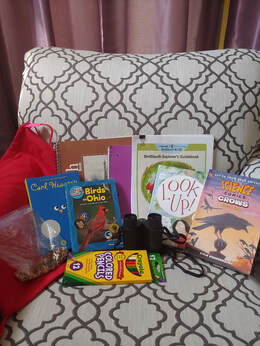 After a four-year hiatus, Marietta College in Marietta, Ohio brought back their summer reading camp in June of 2019. Summer Reading Camp was a three-week, half-day program, sponsored by Marietta College Education Department, designed to assist students in the development of improved reading abilities, oral and written communication skills, and positive attitudes toward reading. Children’s literature and hands-on experiences were the primary instructional tools and camp activities were based around the book The Wild Robot by Peter Brown. Camp was held on campus where students worked in small groups with undergraduate students and local teachers. Priority for camp was given to students who had been recommended for additional literacy instruction by their school. Following our successful return, we decided to revamp our camp to make it even more appealing and helpful to our local families for 2020. We redesigned camp to be full-day in order to provide more reading instruction time and to make the schedule easier to manage for working families. We also expanded our focus to other content areas, renaming the program STREAM camp, which stands for Science, Technology, Reading, Engineering, Art, and Math. This new vision still included high interest books, activities, and reading instruction. However, students would also practice their reading skills and strategies in content-rich texts. Before we could implement STREAM camp, however, we were faced with the global pandemic.
This summer we once again had to place our in-person camp on hold due to the pandemic, and again provide Summer Reading Adventure Packs. Generous contributions from the local community have allowed us to provide 320 packs to local schools for 2021. Additionally, we are listing the selected books and accompanying activities on our website (mcstreamcamp.com) for parents and caregivers who did not receive a pack, but would like to provide this as an enrichment activity for their children. We also created a YouTube channel that features community members reading the books featured in the packs. It is our hope that the reading packs will inspire children to continue to read, explore, and create during the summer in order to be better prepared for their eventual return to the classroom. “The thought of putting these activities together for students is amazing. This is allowing us as a college the opportunity to grow and reach out to the community. It is also helping students continue to grow and learn in a fun way over summer!” —Hannah, a 2021 graduate, who is working on a pet-themed pack for grades K-1 “Did you know that there are robots all around and that you are using aspects of coding to complete everyday tasks? The fourth and fifth-grade students will build their own robot, practice simple coding through giving directions, and even develop their own code with Legos. Through the books and activities the students will get a behind-the-scenes look at the technology that makes up so much of our lives while they develop problem solving skills.” —Elissa, a future graduate, who is working on a STEM-themed pack for grades 4-5 If you are interested in creating your own literacy packs, you should check out the wonderful resources provided by Reading Rockets. They have articles that include why these packs are important and how to create your own. They provide free, downloadable activities and list the companion books you can purchase on your own or check out from your local library. They even have a program called Start with a Book that allows you to explore titles and activities based around several high-interest, content-rich topics. This website also contains helpful hints and instructional videos for caregivers to nurture reading skills and reading motivation in children. We hope that in 2022 STREAM Camp will return to Marietta, improved by the lessons we learned during the pandemic. Resources from Reading Rockets
Raven N. Cromwell works in the Education Department at Marietta College in Marietta, Ohio. Her research interests include diverse children’s literature and pre-service education. Raven is a member of CLA’s Ways and Means Committee. BY KATHRYN CAPRINO
Teachers have been thinking about how to incorporate mindfulness into the elementary school classroom for a bit now. During the fall semester, I completed a study about how children’s picture books that featured mindfulness affected preservice teachers’ mindfulness and how they were thinking about incorporating mindfulness into their classrooms.
And the recent global pandemic has only underscored the importance of having children’s picture books that feature mindfulness. We, as parents, teachers, and teacher educators, need them for ourselves. And we need them for our students. In this post, I share a few contemporary picture books that feature mindfulness elements, and include electronic resources that complement each book - perfect during this time of remote learning. It is my hope that these titles might help us all get through these trying times and propel us into a more mindful approach to what normal looks like on the other side of all this.
|
|
Quick side note: I had the opportunity of seeing a traveling Carle exhibit in Norfolk, Virginia, last summer. With pieces from The Eric Carle Museum of Picture Book Art , the exhibit provided visitors with an opportunity to learn more about Carle’s artistic process and to see some of the most iconic images from his books. One of my favorites was one of his owls! I encourage all of you to visit the museum once things return to normal. You can ask your students to take a virtual tour of the museum.
|
Tomie dePaola's Quiet
Susan Verde and Peter H. Reynolds' I am Peace: A Book of Mindfulness
Mariam Gates' Good Morning Yoga
Kira Willey and Anni Betts' Breathe Like a Bear
- Intention relates to having a personal vision.
- Attention relates to focusing on moments in our lives.
- And attitude relates to the approach one takes to attention.
Shapiro, S. L. Carlson, L. E., Astin, J.A., & Freedman, B. (2006). Mechanisms of mindfulness.
Journal of Clinical Psychology, 62(3), 373-388.
(Re)Connecting & Staying Connected: Sharing Our Lives Through Family Stories & Oral Storytelling
5/21/2020
BY SELENA E. VAN HORN
Connecting with Picturebooks
Mark Gonzales’ Yo Soy Muslim
“Dear little one,
…know you are wondrous. A child of crescent moons, a builder of mosques, a descendant of brilliance, an ancestor in training.”
This story is written as a letter from a father to a daughter celebrating their shared multiple, intersecting identities of race, language, and religion. He passes on his teaching and pride so that it will multiply for generations.
Dan Yaccarino reads All the Way to America: The Story of a Big Italian Family and a Little Shovel
“Work hard...and remember to enjoy life…
And never forget your family”
Yaccarino tells his family’s history from his great-grandfather to his own children through the passing of a family heirloom (a little shovel). He shares the value of family relationships (near and far) and treasuring the little things in life.
|
Jacqueline Woodson’s The Day You Begin
inspired by a poem in her book Brown Girl Dreaming
“There are many reasons to feel different. Maybe it's how you look or talk, or where you're from; maybe it's what you eat, or something just as random. It's not easy to take those first steps into a place where nobody really knows you yet, but somehow you do it.”
Woodson shares how the very things that may make us feel different are the things that make us special. While in some locations or groups we may be individual in our identities and traditions, in other spaces and groups, we may share how we look or talk, where we are from and/or what we eat. It is through our shared histories/storytelling that we learn the values of our families’/communities’ journeys and gain strength in sharing with others. When this happens and we decide to share, it is “The Day You Begin…”
|
Recording and Transcribing Oral Stories
- Students interviewing family members about their shared traditions and/or histories
- Students recording a podcast with their siblings about a shared memory they have
- Students engaged in an individual oral storytelling of their choosing
Oral histories/stories can be recorded and transcribed for multiple listening/reading opportunities. They can be shared with their teacher/class and shared with family/community as a treasure. Students might also consider starting their own podcast and/or oral journaling. Below are a few tools that offer free recording and transcription.
Zoom for Education
Otter.ai
Voice Memo App by Apple
BY ANGELA M. WISEMAN
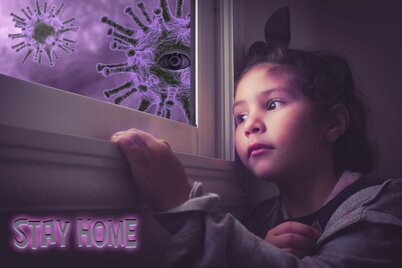
COVID-19 has created stressful situations for many families - we may be concerned about many issues, including financial issues/job security, trying to meet professional obligations, and staying healthy. Children are experiencing general anxiety and stress, but also often experience negative feelings resulting from missing friends and family, adapting to changes in routines and activities, and fear of getting sick. In this post, I am going to suggest some ways to use children’s literature to start conversations about anxieties, sadness, and coping mechanisms. In addition, I share some resources for adults and children that might be helpful.
Books for talking about anxieties and fear
Here are two books that could cultivate conversations about anxiety and stress. I have used both of these texts with my colleagues in a trauma-informed family literacy program for parents who are in rehabilitation for substance use disorder to foster communication and build relationships. After describing the two books that could facilitate discussions, I provide some suggested ebooks about the CoronaVirus. Finally, I provide a few resources that could be helpful for families.
|
After the Fall by Dan Santat This book is a variation on Humpty Dumpty and his great fall. The character in this text falls from a ledge while watching birds. After his recuperation, his fear of falling again affects the things he loves in life and his everyday tasks - from birdwatching to grocery shopping. In this book, we see how Humpty addresses his fears and “learned how to fly”. While on the outset, this book may seem like an updated nursery rhyme, it is much more complex than that. After the Fall is Santat’s love letter to his wife, acknowledging her journey with anxiety and postpartum depression. You can learn more about the backstory at this Sharpread post. When my colleagues and I have used this book in our family literacy program, we have posed the following questions:
|
Ira Sleeps Over by Bernard Weber Ira is invited to his first sleepover, but he wonders...can he tell his friend Reggie that he needs his teddy bear? While his parents tell him it’s fine, his sister berates him and causes him to feel like his friend would make fun of his teddy bear’s name. Reggie initially decides not to bring him, but in the end, finds out that his friend has one too! So, he gets his own bear and can finally enjoy the sleepover. While this book is older, it is infinitely relatable. First, we see how anxiety is affected by how others respond to us. Second, we can talk about the idea of security objects - things that make us feel better when we need them. This could be helpful during times of quarantine. One thing our family has done is talk about things that make us feel better when we are stressed. For instance, my sons are taking regular walks together and having time with their friends online. In our family literacy program, we ask questions such as:
|
Books for talking about the Corona Virus with children
There are several ebooks that are free that are great resources to read with children to explain about COVID-19. Here are some we recommend:
The New York City School Library System recently published a list of free ebooks for children about the novel coronavirus and COVID-19. The list includes several books in Spanish as well as books in other languages. |
www.ahip.org/news/articles/health-insurance-providers-respond-to-coronavirus-covid-19Additional Helpful Resources
|
BY ANGELA M. WISEMAN
In this blogpost, I want to start by addressing some of the anxiety, stress, and trauma that children might be facing during COVID-19. In a second blogpost on Thursday, April 30th, I will share some books that my colleagues and I have found helpful in talking with adults and children about trauma in hopes that these books can start facilitating conversations about feelings, fears, hopes, and dreams.
|
*Thanks to my friend and colleague Dr. Qiana Cryer-Coupet for sharing this visual. This comes from Dr. Erin Leyba’s page, which is a great resource for parents. Graphic posted with permission by Dr. Leyba.
|
Missing family - In addition to missing friends, many children miss their family. Families may find themselves separated from each other for many reasons, particularly if one family member is an essential worker. One mother shared that “my eight year old is staying with his bio dad/my ex-husband during the quarantine because my husband (his stepdad) is a nurse. He has been missing us terribly and we miss him so much, too!” One caring adult shared that she put together a care package for a child in their life with individual notes for them to open each day. They stated that “I hope this will let him know I’m thinking about him all the time!”
Missing Routines and Activities - Children miss their regular routines and activities that they do outside of school that have been shut down indefinitely, which could include sports and other activities they do with friends and on teams. One parent told me that, “My oldest son is a competitive rock climber, and he hasn’t been in the gym in over a month and really misses that physical outlet of climbing. He’s quite literally climbing the walls in this house.”
General feelings of anxiety - Finally, many children are sharing general feelings of anxiety that are not necessarily articulated to specific concerns. While it may be hard to pinpoint what the concerns are, these behaviors might show as sleeplessness, acting out, or tiredness. Children might not come out and say, "I'm worried about this!"
April 30, 2020 Update: Part II of post
Authors:
CLA Members
Supporting PreK-12 and university teachers as they share children’s literature with their students in all classroom contexts.
The opinions and ideas posted in the individual entries are those of the individual authors and do not necessarily reflect the opinions or views of CLA or the Blog Editors.
Blog Editors
contribute to the blog
If you are a current CLA member and you would like to contribute a post to the CLA Blog, please read the Instructions to Authors and email co-editor Liz Thackeray Nelson with your idea.
Archives
May 2024
April 2024
March 2024
February 2024
January 2024
December 2023
November 2023
October 2023
September 2023
August 2023
May 2023
April 2023
March 2023
December 2022
November 2022
October 2022
September 2022
August 2022
June 2022
May 2022
April 2022
March 2022
February 2022
January 2022
December 2021
November 2021
October 2021
September 2021
August 2021
June 2021
May 2021
April 2021
March 2021
February 2021
January 2021
December 2020
November 2020
October 2020
September 2020
August 2020
June 2020
May 2020
April 2020
March 2020
Categories
All
Activism
Advocacy
African American Literature
Agency
All Grades
American Indian
Antiracism
Art
Asian American
Authors
Award Books
Awards
Back To School
Barbara Kiefer
Biography
Black Culture
Black Freedom Movement
Bonnie Campbell Hill Award
Book Bans
Book Challenges
Book Discussion Guides
Censorship
Chapter Books
Children's Literature
Civil Rights Movement
CLA Auction
CLA Breakfast
CLA Expert Class
Classroom Ideas
Collaboration
Comprehension Strategies
Contemporary Realistic Fiction
COVID
Creativity
Creativity Sponsors
Critical Literacy
Crossover Literature
Cultural Relevance
Culture
Current Events
Digital Literacy
Disciplinary Literacy
Distance Learning
Diverse Books
Diversity
Early Chapter Books
Emergent Bilinguals
Endowment
Family Literacy
First Week Books
First Week Of School
Garden
Global Children’s And Adolescent Literature
Global Children’s And Adolescent Literature
Global Literature
Graduate
Graduate School
Graphic Novel
High School
Historical Fiction
Holocaust
Identity
Illustrators
Indigenous
Indigenous Stories
Innovators
Intercultural Understanding
Intermediate Grades
International Children's Literature
Journal Of Children's Literature
Language Arts
Language Learners
LCBTQ+ Books
Librarians
Literacy Leadership
#MeToo Movement
Middle Grade Literature
Middle Grades
Middle School
Mindfulness
Multiliteracies
Museum
Native Americans
Nature
NCBLA List
NCTE
NCTE 2023
Neurodiversity
Nonfiction Books
Notables
Nurturing Lifelong Readers
Outside
#OwnVoices
Picturebooks
Picture Books
Poetic Picturebooks
Poetry
Preschool
Primary Grades
Primary Sources
Professional Resources
Reading Engagement
Research
Science
Science Fiction
Self-selected Texts
Small Publishers And Imprints
Social Justice
Social Media
Social Studies
Sports Books
STEAM
STEM
Storytelling
Summer Camps
Summer Programs
Teacher
Teaching Reading
Teaching Resources
Teaching Writing
Text Sets
The Arts
Tradition
Translanguaging
Trauma
Tribute
Ukraine
Undergraduate
Using Technology
Verse Novels
Virtual Library
Vivian Yenika-Agbaw Student Conference Grant
Vocabulary
War
#WeNeedDiverseBooks
YA Lit
Young Adult Literature

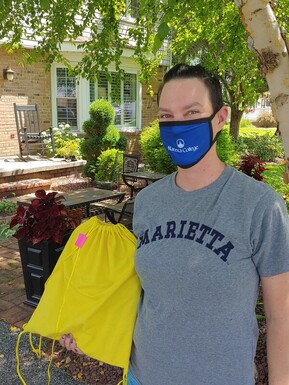
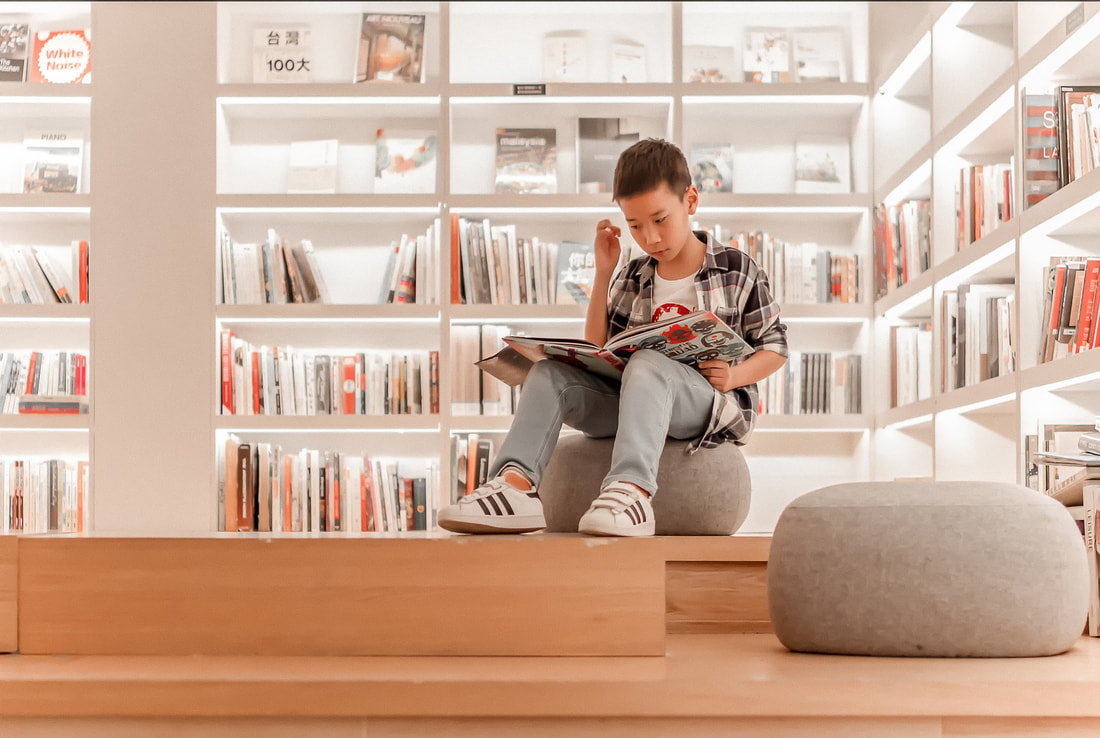
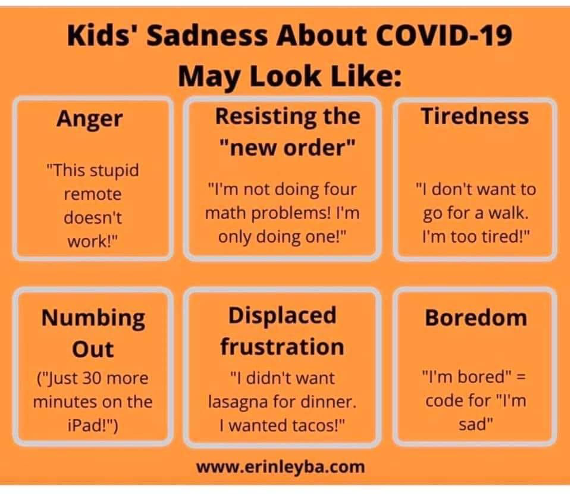
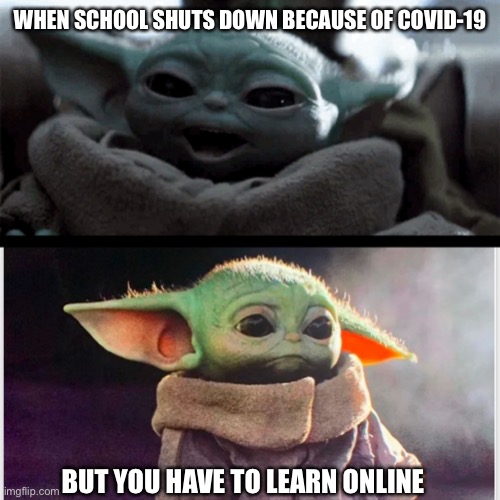
 RSS Feed
RSS Feed